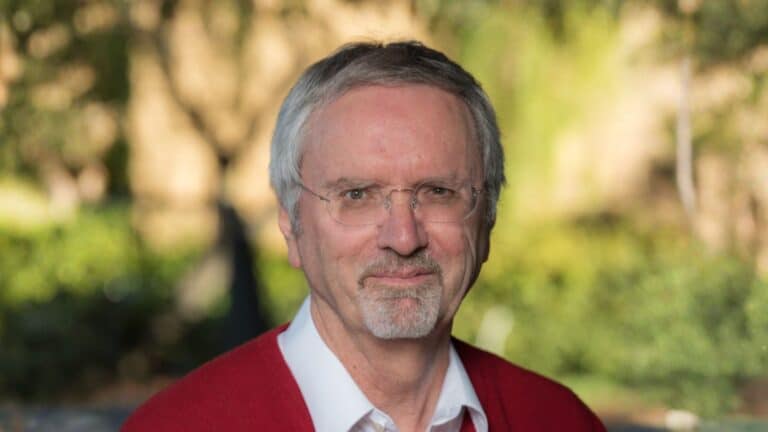This website uses cookies as well as similar tools and technologies to understand visitors’ experiences. By continuing to use this website, you consent to Columbia University’s usage of cookies and similar technologies, in accordance with the Columbia University Website Cookie Notice.
NEW YORK — The Center on Global Energy Policy at Columbia University’s School of International and Public Affairs announced today that Dr. Melissa C. Lott has been selected as the Center’s Director of Research. Dr. Lott will serve as a key part of the leadership team, working with the Center’s Founding Director to shape the Center’s research efforts that span the economic, environmental, and geopolitical aspects of the current and future energy system.
“Melissa’s deep knowledge and expertise will contribute greatly to the understanding of critical energy issues and enhance the Center’s research, teaching, engagement, and, ultimately, its impact on solutions for climate change. I am really looking forward to working with Melissa,” said Dr. Geoffrey M. Heal, Donald C. Waite III Professor of Social Enterprise at Columbia Business School and Chair of CGEP’s Academic Steering Committee.
“We could not be more excited that Melissa will be moving into this new position. Melissa exemplifies CGEP’s mission by combining first-rate scholarship with a proven track record of external engagement, communication and impact,” said Jason Bordoff, Professor of Professional Practice in International and Public Affairs and Founding Director of CGEP.
As CGEP’s Research Director, Dr. Lott will develop research collaborations across Columbia University, its new Climate School, and outside academic organizations, oversee CGEP’s external expert review process for research publications, and coordinate the work of CGEP’s research programs to advance academic research that responds to the challenges of today in real-time.
“We are facing a series of critical challenges around the world as we work to mitigate the worst impacts of climate change and protect human health and the environment. The energy sector lies at the heart of the solutions, and detailed, fact-based analysis to support policy solutions is needed more than ever. It is an honor to take on this new role at the Center on Global Energy Policy, and I look forward to developing new research in conjunction with CGEP’s other scholars and our partners both within Columbia University and throughout the global research community,” said Dr. Lott.
About Dr. Melissa C. Lott
Dr. Lott joined CGEP in October 2019, to lead the Center’s Power Sector and Renewables Research Initiative. Prior to joining CGEP, Dr. Lott served as the Assistant Vice President of the Asia Pacific Energy Research Centre, where she led the development of the flagship APEC Energy Demand and Supply Outlook. Dr. Lott also served as the primary author of the International Energy Agency’s technology roadmap on energy storage. She was previously a Presidential Management Fellow at the U.S. Department of Energy, where she was the Lead of Energy Modeling and Simulation for the CFO’s Program Analysis and Evaluation Office. Dr. Lott holds a Ph.D. from University College London and master’s degrees in both mechanical engineering and public affairs from the University of Texas at Austin. She holds a bachelor’s degree in biological systems engineering from the University of California, Davis. An author of more than 350 articles on energy, Dr. Lott is known for her role as a founding author of Scientific American’s Plugged In energy column.
About the Center on Global Energy Policy
The Center on Global Energy Policy at Columbia University SIPA advances smart, actionable, and evidence-based energy and climate solutions through research, education, and dialogue. Based at one of the world’s top research universities, what sets CGEP apart is our ability to communicate academic research, scholarship, and insights in formats and on timescales that are useful to decision-makers. We bridge the gap between academic research and policy — complementing and strengthening the world-class research already underway at Columbia University, while providing support, expertise, and policy recommendations to foster stronger, evidence-based policy. Recently, Columbia University President Lee Bollinger announced the creation of a new Climate School — the first in the nation — to tackle the most urgent environmental and public health challenges facing humanity. Follow us on Twitter @ColumbiaUEnergy.
More News
COP30 and America’s place in fighting climate change
The Trump administration didn't send a delegation to Brazil.
More Top Climate News
Local communities are hosting events where people can bring in their broken goods for repairs—free of charge.
Relevant
Publications
Regulatory Progress for Project-Based Carbon Credit Markets: Pre-COP30 Roundtable Summary
On November 6, 2025, in the lead-up to the annual UN Conference of the Parties (COP30), the Center on Global Energy Policy (CGEP) at Columbia University SIPA convened a roundtable on project-based carbon credit markets (PCCMs) in São Paulo, Brazil—a country that both hosted this year’s COP and is well-positioned to shape the next phase of global carbon markets by leveraging its experience in nature-based solutions.

Opinion: Time for CT to rethink its climate strategy
Connecticut needs an honest debate, and fresh thinking, to shape a climate strategy fit for today, not 2022.

Climate Ambition and Electricity Affordability: Lessons from Connecticut



